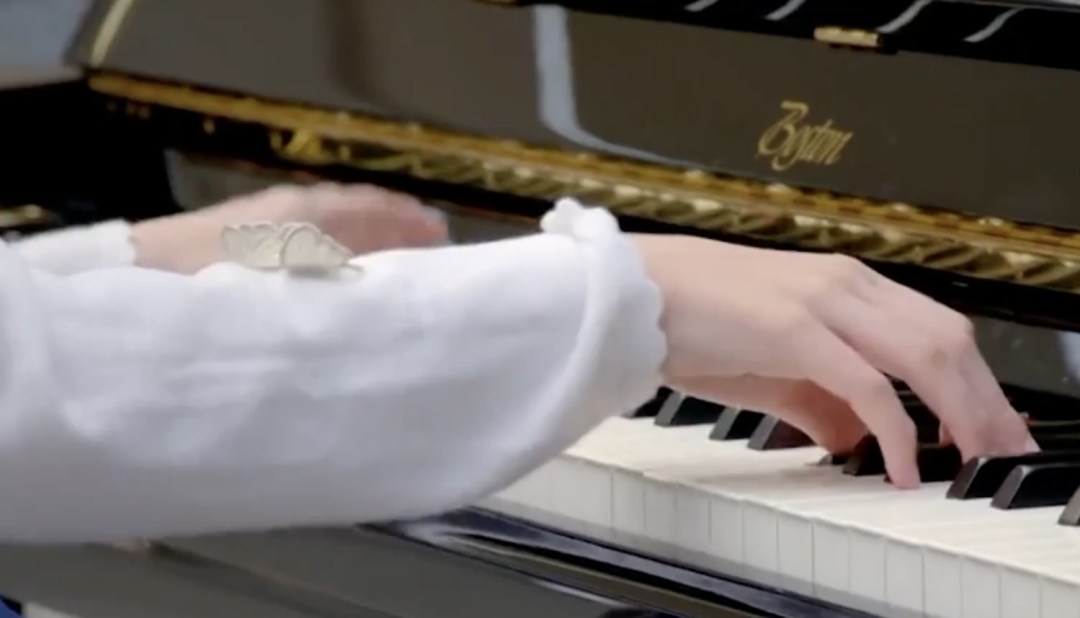13-year-old Lucy is blind and neurodivergent, and left judges speechless with her incredible performance of a Chopin nocturne on a TV show called “The Piano”.
Chopin
Star pianist Lang Lang was rendered speechless during the episode. 13-year-old Lucy took to the piano in Leeds City Railway Station with a captivating performance of Chopin’s Nocturne in B flat minor. Piano teachers suggest the piece is at a Grade 8 level of piano.
Lucy is blind and neurodivergent. She is taking part in a new British television show, The Piano – a search for the nation’s best amateur pianists. 
Impossible
At one point, Lang says: ‘It’s unbelievable that she can play this piece. How – how does she study? I mean, it’s incredible.’ As Lucy finishes the piece and the crowd applauds her, Lang can be heard saying: ‘This is impossible.’
Interesting new research in music psychology and therapy shows that Chopin’s tunes can evoke positive emotions, improve psychological well-being, regulate emotion, and even reduce stress. Chopin’s music forms a kind of bridge between the soma (the bodily response) and psyche (the mental response) of its receivers.
Perhaps that’s one reason Lucy loves playing Chopin.
Watch her performance below.
Neurodivergent
I learned a new word. Neurodivergent is a nonmedical term that describes people whose brains develop or work differently for some reason.
Like a person’s fingerprints, no two brains — not even those of identical twins — are exactly the same. Because of that, there’s no definition of “normal” capabilities for the human brain.
For most areas of modern medicine, defining what’s normal is critical. In many circumstances, healthcare providers determine a person’s health based on the yes-or-no question, “Is this normal?” Depending on the answer, a person is either sick or well based on symptoms they do or don’t have or things they can or can’t do.
Health Care
An example of this in everyday life would be comparing the following two people with a special talent for drawing.
Person #1: A 12-year-old child with autism spectrum disorder (ASD) who struggles in social situations. The child’s main ASD-related issues are social problems, unusually high interest in drawing and being strictly dependent on a daily routine. The child is naturally better at drawing without taking classes or accumulating experience.
Person #2: A 40-year-old neurotypical adult. The adult learned to draw at the age of 17, and their talent took hard work and time to develop. They’re very social and make friends easily.
No one would consider the adult abnormal or defective because they can’t paint as well as the child. Likewise, autism spectrum disorder is a condition that can take many different forms, many of which happen in people who don’t have ASD.
Psalm 137
The Psalmist articulated the wonder of our brains and bodies as “we are fearfully and wonderfully made.” (Psalm 139:14) The wonder of it all.
Hope grows here. We share stories that inspire people, build faith, and offer lasting purpose.
We’d love to have you Subscribe to REVwords. We’ll put helpful content into your inbox Mondays and Fridays.





Lucy’s story is just amazing…incredible. Thank you for sharing that story & video Pastor Bob. I play instruments as a person who has sight…I can’t imagine being blind & having the challenges that she has. Wow!